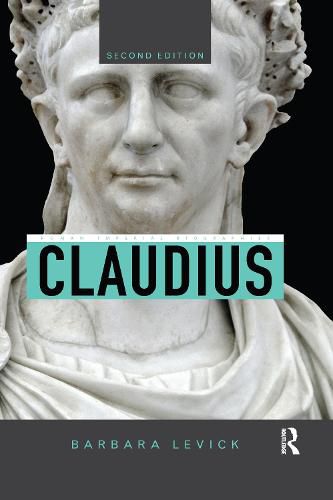Readings Newsletter
Become a Readings Member to make your shopping experience even easier.
Sign in or sign up for free!
You’re not far away from qualifying for FREE standard shipping within Australia
You’ve qualified for FREE standard shipping within Australia
The cart is loading…






Claudius became emperor after the assassination of Caligula, and was deified by his successor Nero in AD 54. Opinions of him have varied greatly over succeeding centuries, but he has mostly been caricatured as a reluctant emperor, hampered by a speech impediment, who preferred reading to ruling.
Barbara Levick’s authoritative study reassesses the reign of Claudius, examining his political objectives and activities within the constitutional, political, social and economic development of Rome. Out of Levick’s critical scrutiny of the literary, archaeological and epigraphic sources emerges a different Claudius - an intelligent politician, ruthlessly determined to secure his position as ruler.
Now updated to take account of recent scholarship, Claudius remains essential reading for students and historians of the early Roman Empire.
$9.00 standard shipping within Australia
FREE standard shipping within Australia for orders over $100.00
Express & International shipping calculated at checkout
Claudius became emperor after the assassination of Caligula, and was deified by his successor Nero in AD 54. Opinions of him have varied greatly over succeeding centuries, but he has mostly been caricatured as a reluctant emperor, hampered by a speech impediment, who preferred reading to ruling.
Barbara Levick’s authoritative study reassesses the reign of Claudius, examining his political objectives and activities within the constitutional, political, social and economic development of Rome. Out of Levick’s critical scrutiny of the literary, archaeological and epigraphic sources emerges a different Claudius - an intelligent politician, ruthlessly determined to secure his position as ruler.
Now updated to take account of recent scholarship, Claudius remains essential reading for students and historians of the early Roman Empire.